Craig Walsh, the son of 49ers Pro Football Hall of Fame coach Bill Walsh, has plans Sunday in Arizona to watch his father's two teams play at Paul Brown Stadium (4:25 p.m.-Cincinnati's Channel 12) and he'll salute the festivities with a beer mug left over from the Bengals first team in 1968.
During the 40th anniversary season of both franchise's first Super Bowl teams, the Bengals mug in Craig Walsh's office shows you just how much these two teams have sipped from the same cup down through the Shakespearean-like imagery of that special NFL cauldron known as Bengals-49ers.
"Fate," Craig Walsh says as he mulled what may be going through his mind as he watches quarterbacks Joe Burrow and Jimmy Garoppolo duel on a patch of riverbank Bill Walsh and Paul Brown introduced the modern pass game.
"I have fond memories of going to Indian Hill High School and growing up in Cincinnati and eating at the rib house. Montgomery Inn? My father loved that place," Craig Walsh says. "A lot of fond memories. I still have friends there I still keep in touch with."
Craig Walsh was there at the creation. The 10-year-old son of Paul Brown's top lieutenant in the venture known as "The Baby Bengals," Craig was recruited to be a ball boy for those first Bengals teams that wobbled in AFL expansion. It was before they crawled through the merger with the NFL and bolted to two division titles in the first six seasons of life. Brown, the Hall of Fame pioneer, and Walsh, his bright young quarterbacks and wide receivers coach, collaborated on a new offense that took a precise short route into the '70s new brand of ball.
That's when Craig Walsh became close to Paul Brown in an age long before personal assistants. Brown had his own locker room and Craig would set it up for him. He'd lay out the same training camp gear day after day. White T-Shirt. Khaki pants. Hat. Whistle.
"One day my dad and Paul had a disagreement and they bickered in front of the team," says Craig Walsh, who figures he was about 12. "After practice, Paul's taking a shower and he yells out, 'Craig, coaches do that some times. Hey look, your dad is going to be a great coach some day in the NFL. I just want you to know that.'"
When Bill Walsh died of leukemia in 2007, those were the memories the son held on to in the maze of emotions when it comes to Bill Walsh and Paul Brown. 49ers and Bengals. Fate and fortune.
"Everybody knows the story," says Craig Walsh, who left a good Indian Hill team to finish his high school football career at La Jolla High School. "It's been covered a few different times. My dad was shocked when he didn't get that job. … We literally within seven days moved back down to San Diego."
Everybody knows the story. When Paul Brown retired as head coach of the Bengals after the 1975 season, he chose offensive line coach Bill "Tiger" Johnson as his successor and Walsh had some hard words.

Six years later in Super Bowl XVI, Walsh's 49ers beat the Bengals, quarterbacked by NFL MVP Ken Anderson, the man Walsh developed into a two-time league passing champion in Cincinnati. Seven Super Bowls later, Walsh's 49ers beat a Bengals team coached by Sam Wyche, one of those limited but smart Bengals quarterbacks Walsh and Brown used to give birth to what is now known as a staple of today's game known as the "West Coast Offense."
Everybody knows the story but Craig Walsh doesn't hold on to the disappointment. He holds on to the memory of a father who partnered up with a legend to change the game and became a legend himself. He says his dad visited Paul Brown in the last days of Brown's life and that they reconciled. He can see the old Bengals in his father's iconic 49ers teams.
"Sam was a student of the game. I don't think he ever threw a ball over 30 yards," Craig Walsh says of Wyche. "He had a great passing percentage. With my father, this isn't something he set out to do. This is something that happened to him in Cincinnati, which changed his whole coaching philosophy and carried over to the modern 49ers when he took over.
"My dad took what was on that team and created an offense. He didn't have a playbook where he sat up all hours of the night crafting plays. He saw what he had."
When AFL Rookie of the Year Greg Cook got hurt in 1970, the Bengals turned to a veteran with a strong mind and weak arm and Virgil Carter used the short passes to get them to a division title. Chip Myers wasn't a fast wide receiver, but he was a terrific route runner who could find all the holes.
"Jump ahead to my father's 49ers teams and there was guy like that in Dwight Clark," says Walsh, then pointing to Bengals wide receiver Isaac Curtis and the arrival of Jerry Rice with Walsh in San Francisco a dozen years later.
Patriots head coach and resident pro football historian Bill Belichick likes to call it the "Ohio River Offense," because Brown brought the framework with him from his iconic years in Cleveland. He built the NFL's first dynasty centered on an offense with a kaleidoscope of innovative passing for the black-and-white 1950s.

"Paul did throw the ball, but Paul just didn't like the idea of short passing," Craig Walsh says. "He thought it was fraught with problems because of a tipped ball intercepted, fumble. He slowly but surely bought into it because in those early days even an expansion team could move the ball down field in a heavily dominated defensive scheme. In those days it was all about stopping people."
That gets Craig Walsh recalling what he said at his father's funeral service.
"I thank Paul Brown for hiring my father," he says. "He gave him the latitude to stretch out and do what he needed to do. Some coaches just dominate. It's their way or the highway and Paul gave him the latitude as the years progressed."
They were all on board for Kenny Anderson and Craig remembers when his dad wanted to try Tommie Smith, a trackster out of his stomping grounds of San Jose State.
"Speed City," they called it, and Smith was the 200-meter Olympic champion. Less than a year removed from his Black Power salute in Mexico City, Smith found one of the only places where he was welcome was the Baby Bengals and they tried him for two games in 1969.
"That was an innovation that Paul allowed my dad. To bring in Tommie Smith," says Walsh, despite the headlines. "Paul had the foresight to say, 'Hey, let's give him a try.'"
In the end, they had more in common than not. Bright. Engaging. Not afraid of innovation. Both had their hearts broken by football, only to return after retreating to the ocean of La Jolla. Brown to recover, Walsh to work for the Chargers,
"Anytime you get to the top of your profession," Craig Walsh says, "you're going to be that guy."
Don't just assume Craig Walsh is rooting for the 49ers Sunday.
"Not so much," says Walsh, a long-time Silicon Valley commercial realtor. "The regime from my father's time is long gone. It's a whole different show now."
Craig Walsh thinks his dad would love Bengals quarterback Joe Burrow. "He's hitting on all cylinders," and it gets him thinking back to the emergence of Ken Anderson.
"I'll be drinking out of that mug when the Bengals score that first touchdown. You know where that mug is going to be. It's going to be on my lips," says Walsh, who won't disclose which team he's rooting for Sunday.
But he does have a soft enough spot for the Bengals to toast.
"That's where it all started," Craig Walsh says.
A look at some of the top photos from the Bengals-49ers contests through the years.
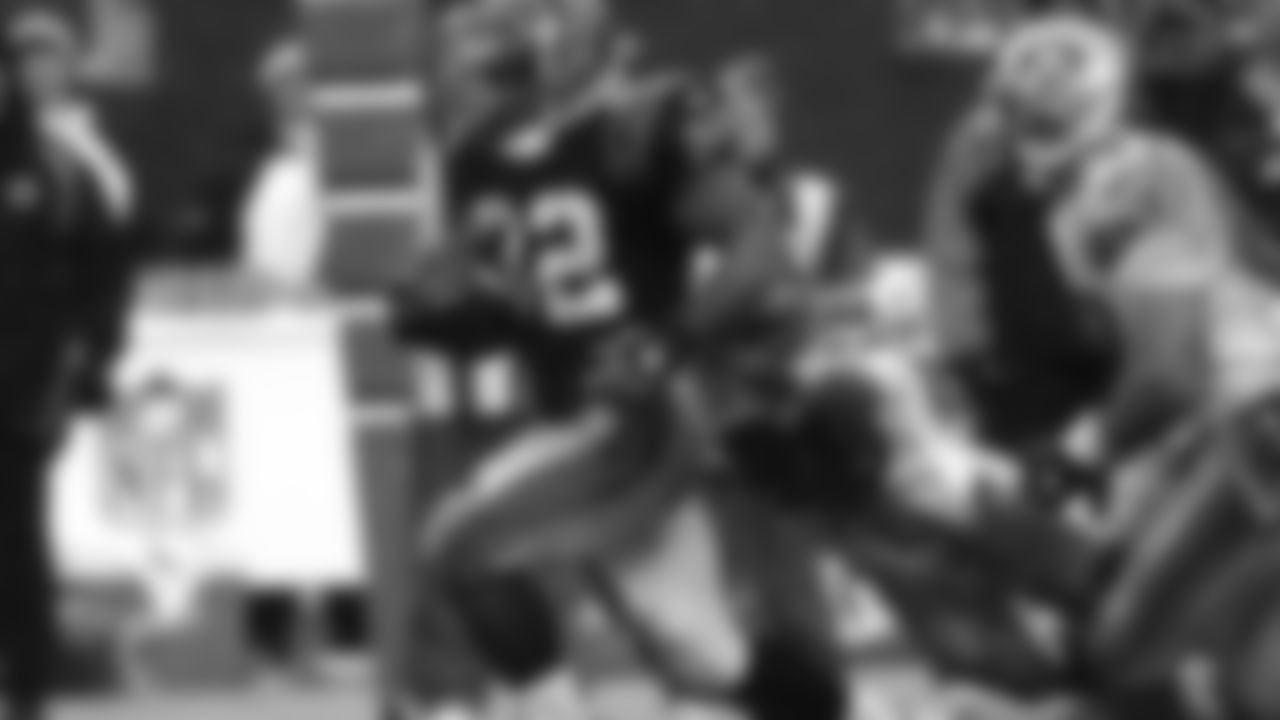
Bengals running back Rudi Johnson breaks a tackle en route to a rushing touchdown against the San Francisco 49ers in 2003.

Cincinnati Bengals Dan Ross celebrates as he scores a touchdown during Super Bowl XVI Jan. 24, 1982, at the Pontiac Silverdome in Pontiac, Mich. (Tony Tomsic via AP)
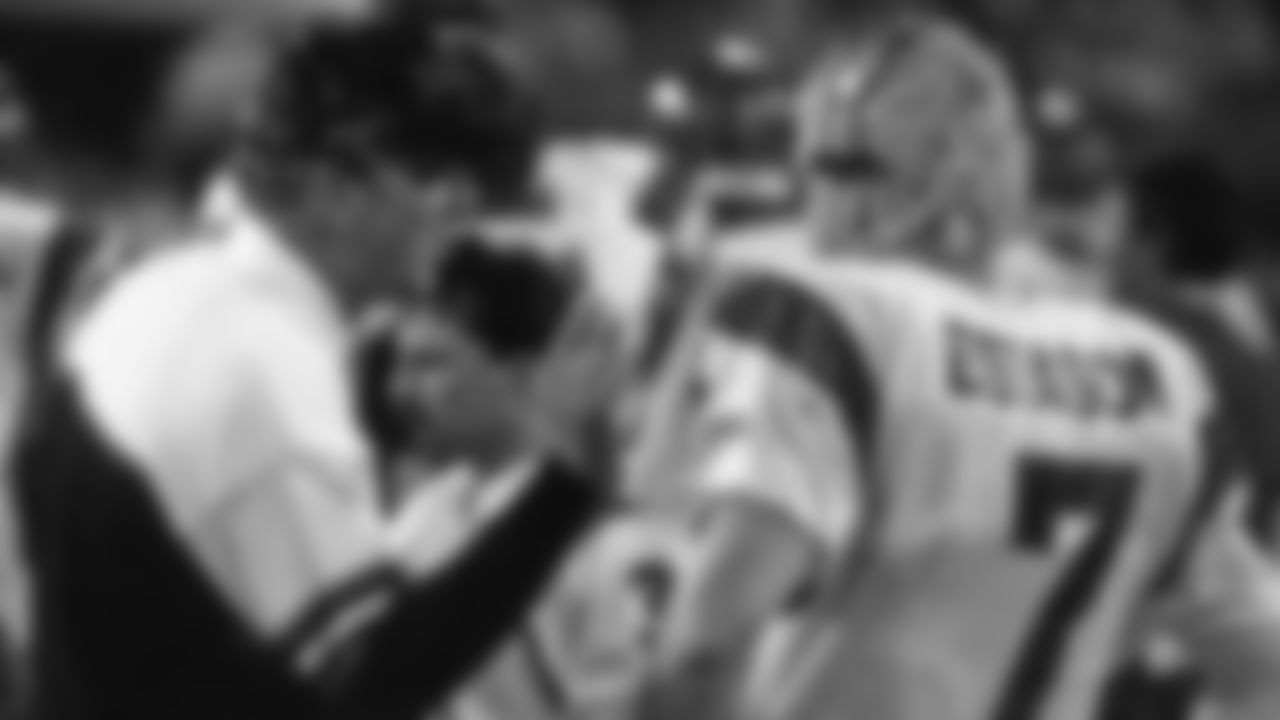
Bengals head coach Sam Wyche chats with quarterback Boomer Esiason during a timeout at Super Bowl XXIII in Tampa, Florida.
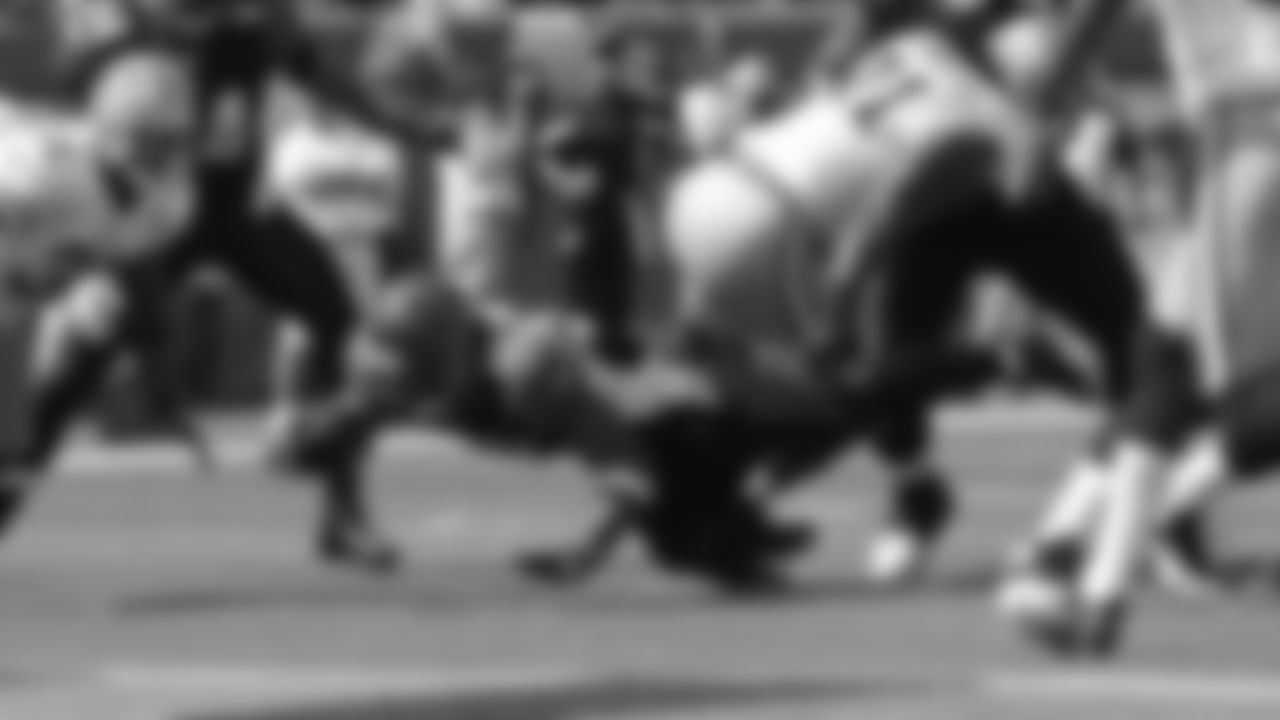
Cincinnati Bengals running back Cedric Benson (32) dives for the goal line in the first half of an NFL football game against the San Francisco 49ers, Sunday, Sept. 25, 2011, in Cincinnati. (AP Photo/Ed Reinke)
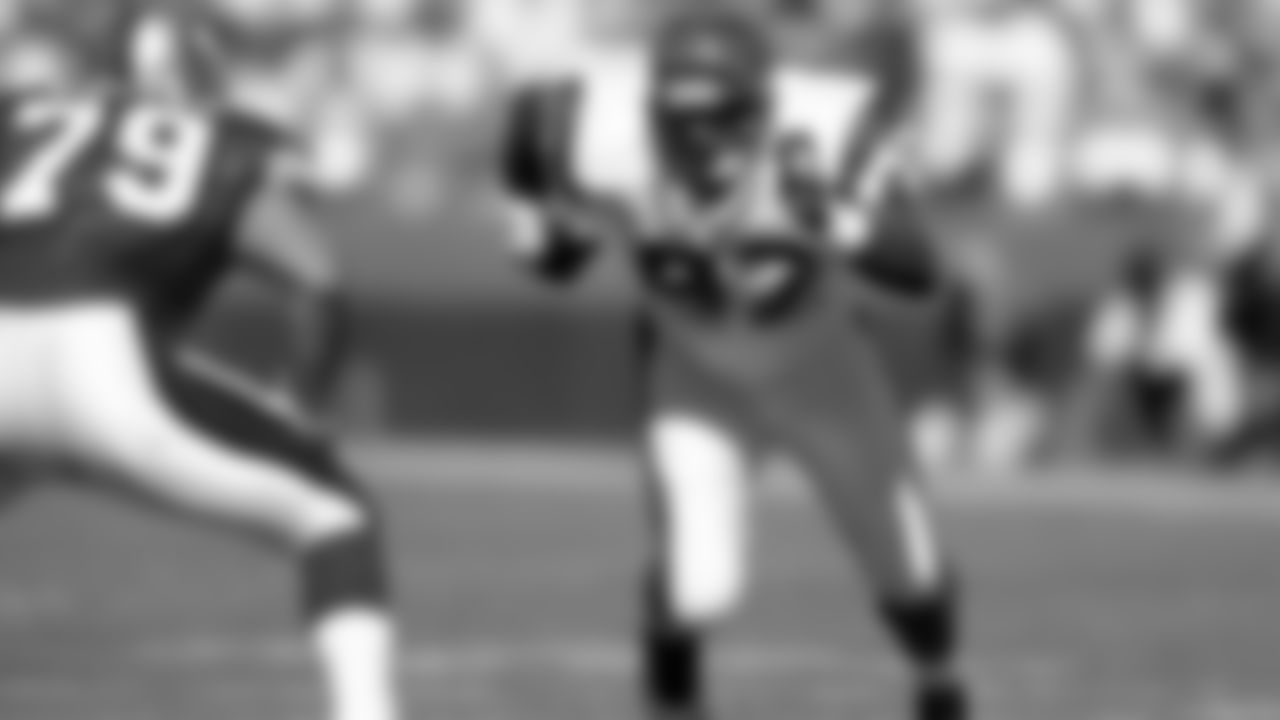
Cincinnati Bengals defensive end John Copeland (92) is seen in action during an NFL game against the San Francisco 49ers, Sunday, Oct. 20, 1996, in Santa Clara, Calif. (Allen Kee via AP)
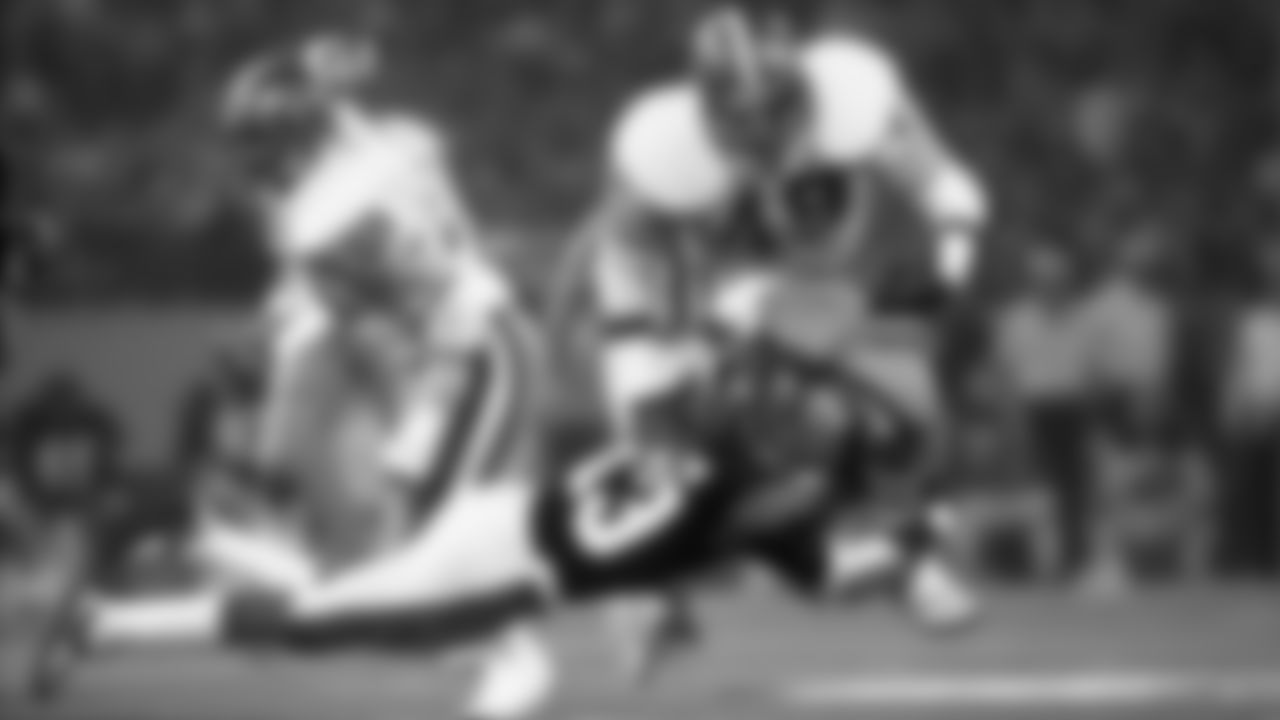
Ken Riley of the Cincinnati Bengals dives to bring down San Francisco 49ers fullback Earl Cooper (49) at the Pontiac Silverdome in Super Bowl XVI on January 24, 1982. (AP Photo / Al Messerschmidt)
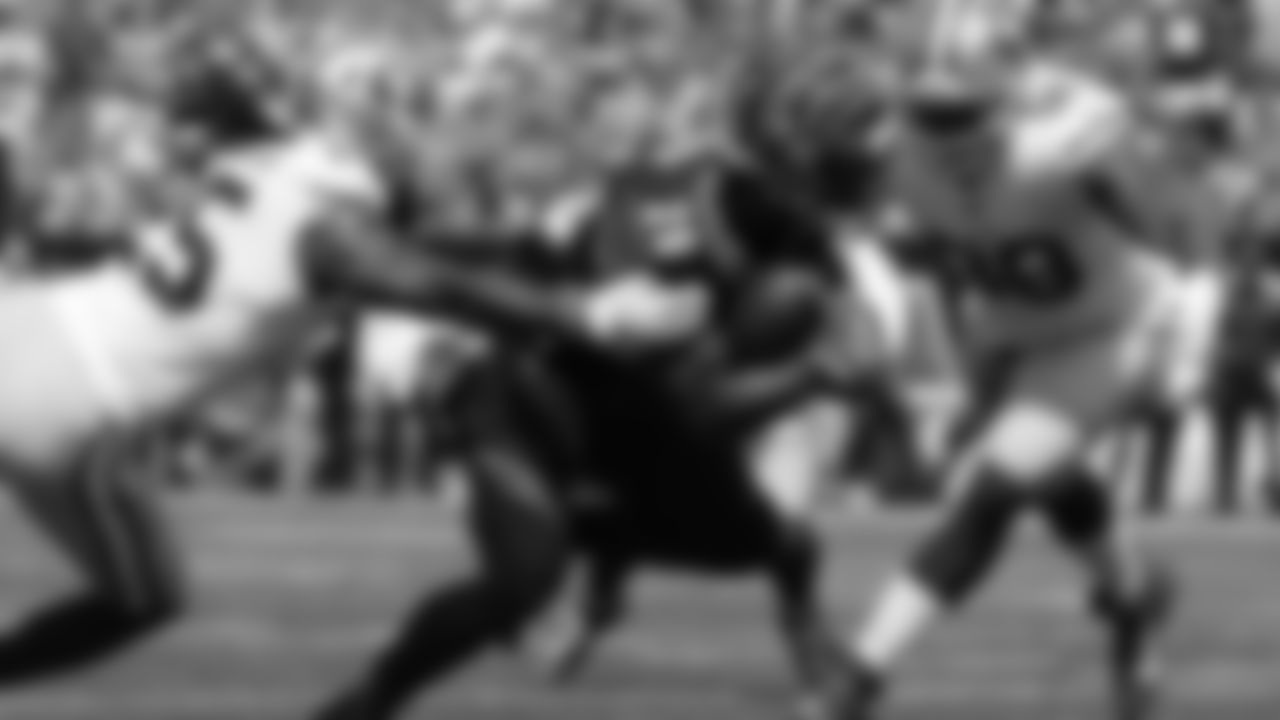
Cincinnati Bengals running back Joe Mixon (28) runs the ball against San Francisco 49ers cornerback Richard Sherman (25) during the first half an NFL football game, Sunday, Sept. 15, 2019, in Cincinnati. (AP Photo/Frank Victores)
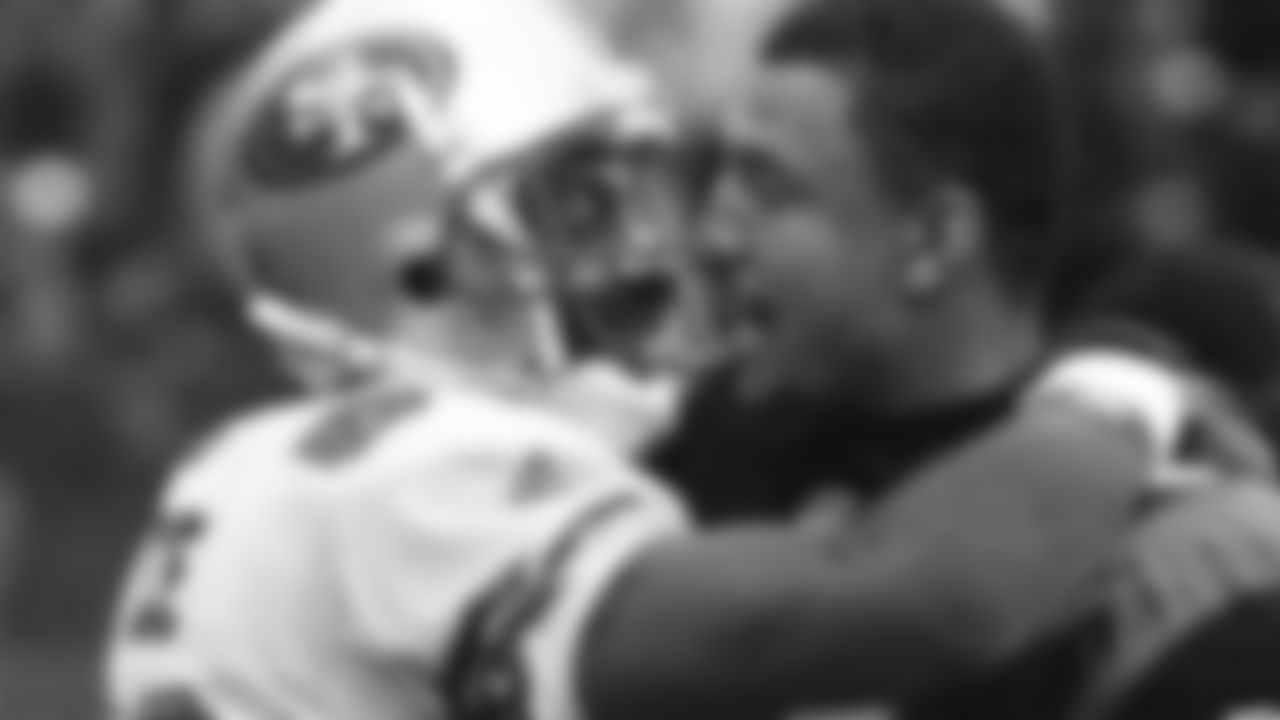
San Francisco 49ers receiver Jerry Rice, left, hugs Cincinnati Bengals receiver Carl Pickens after the Bengals won 44-30, Sunday, Dec. 5, 1999, in Cincinnati. Rice caught 9 passes for 157 yards and two touchdowns, while Pickens caught 7 passes for 107 yards and two touchdowns in the game. (AP Photo/David Kohl)
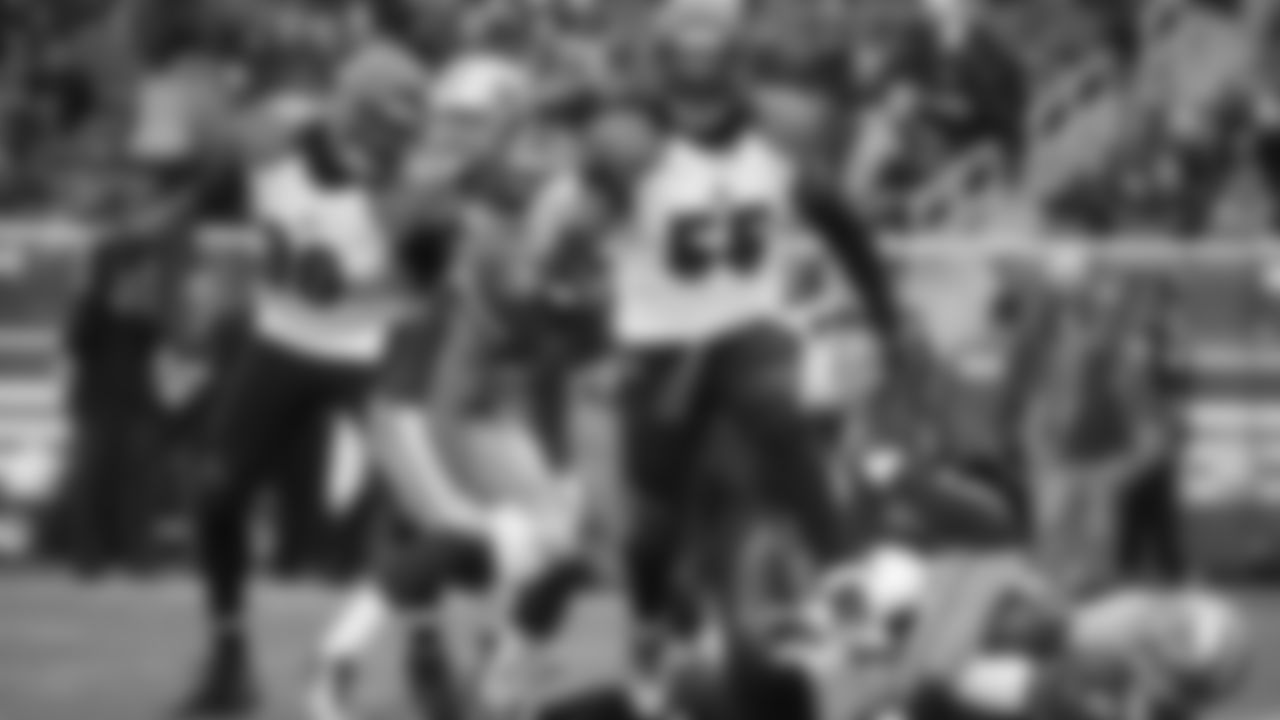
Cincinnati Bengals outside linebacker Vontaze Burfict (55) reacts after sacking San Francisco 49ers quarterback Blaine Gabbert (2) during the first half of an NFL football game in Santa Clara, Calif., Sunday, Dec. 20, 2015. (AP Photo/Tony Avelar)
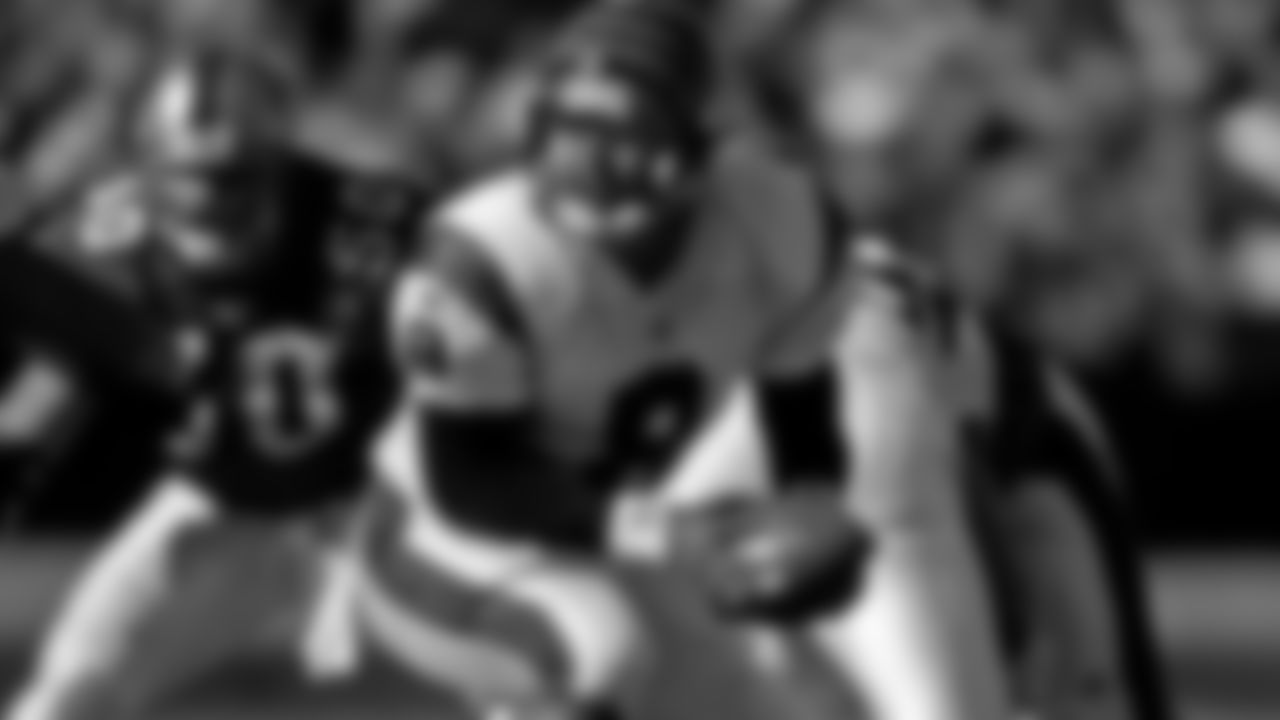
San Francisco 49ers vs. Cincinnati Bengals at Candlestick Park Sunday, October 20, 1996. Cincinnati Bengals quarterback Jeff Blake (8). (AP Photo/Al Golub)
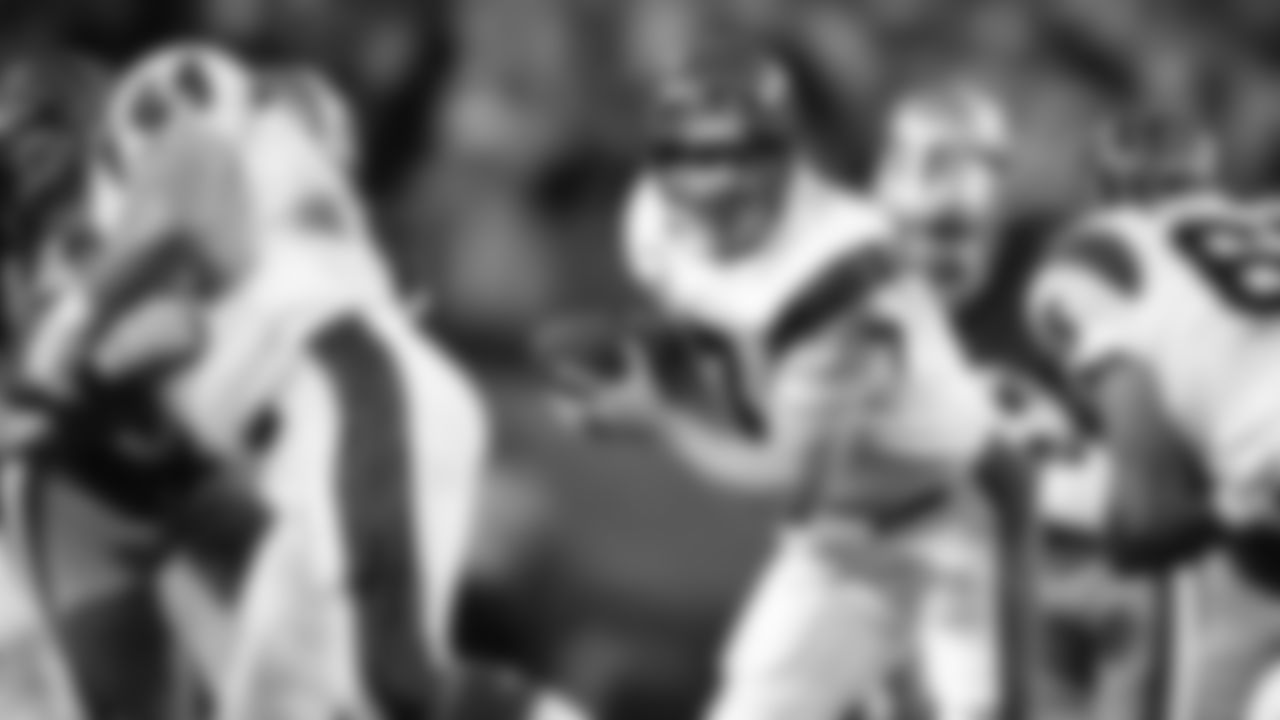
Cincinnati Bengals quarterback Boomer Esiason (7) looks for an open receiver during Super Bowl XXIII on Jan. 22, 1989, at Joe Robbie Stadium in Miami. (Tony Tomsic via AP)
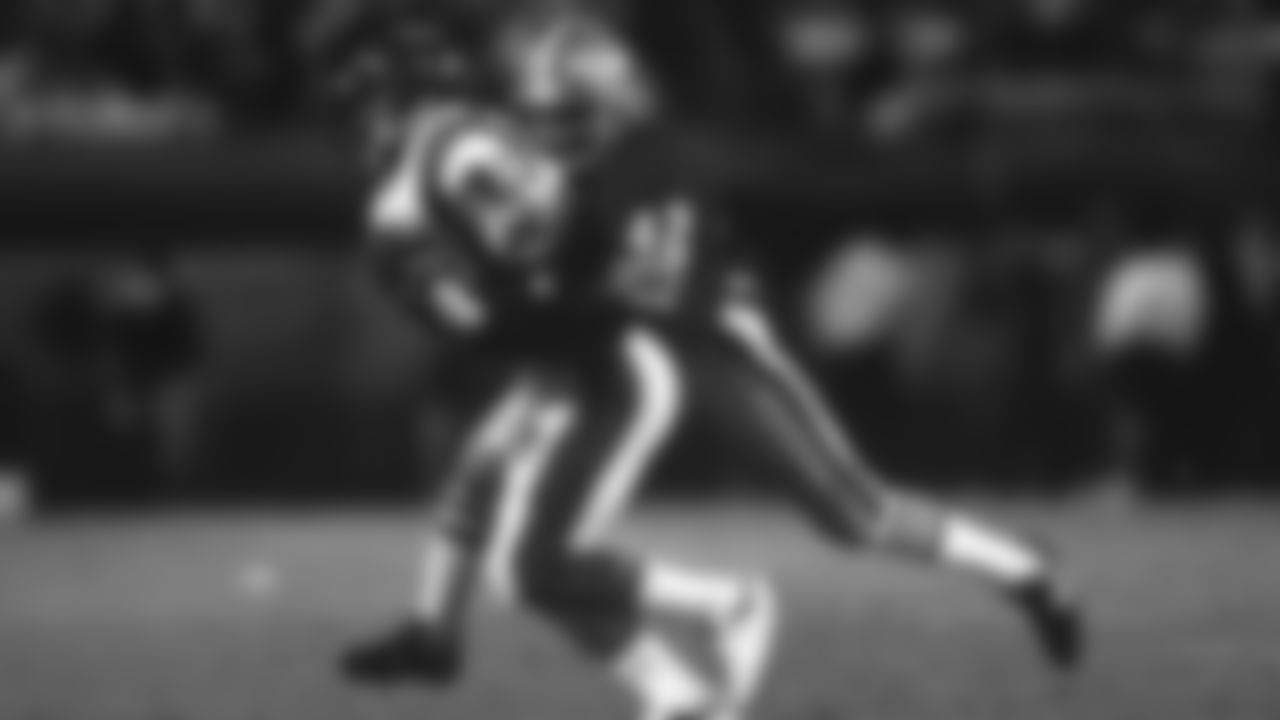
San Francisco 49ers Hall of Fame safety Ronnie Lott (42) stops Cincinnati Bengals wide receiver Eddie Brown (81) during an NFL Super Bowl XXIII Game at Joe Robbie Stadium on January 22, 1989. (Peter Read Miller via AP)
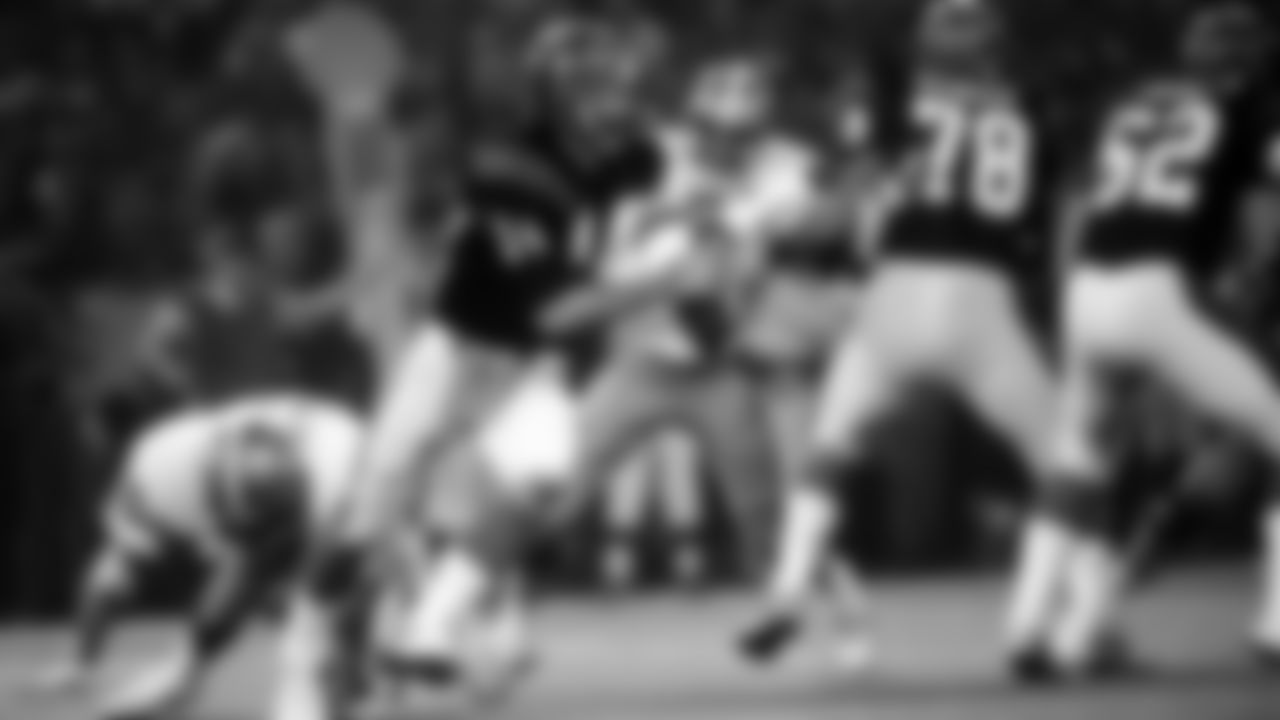
Cincinnati Bengals quarterback Ken Anderson (14) rolls out during Super Bowl XVI against the San Francisco 49ers on Jan. 24, 1982, at the Pontiac Silverdome in Pontiac, Mich. (Al Messerschmidt via AP)
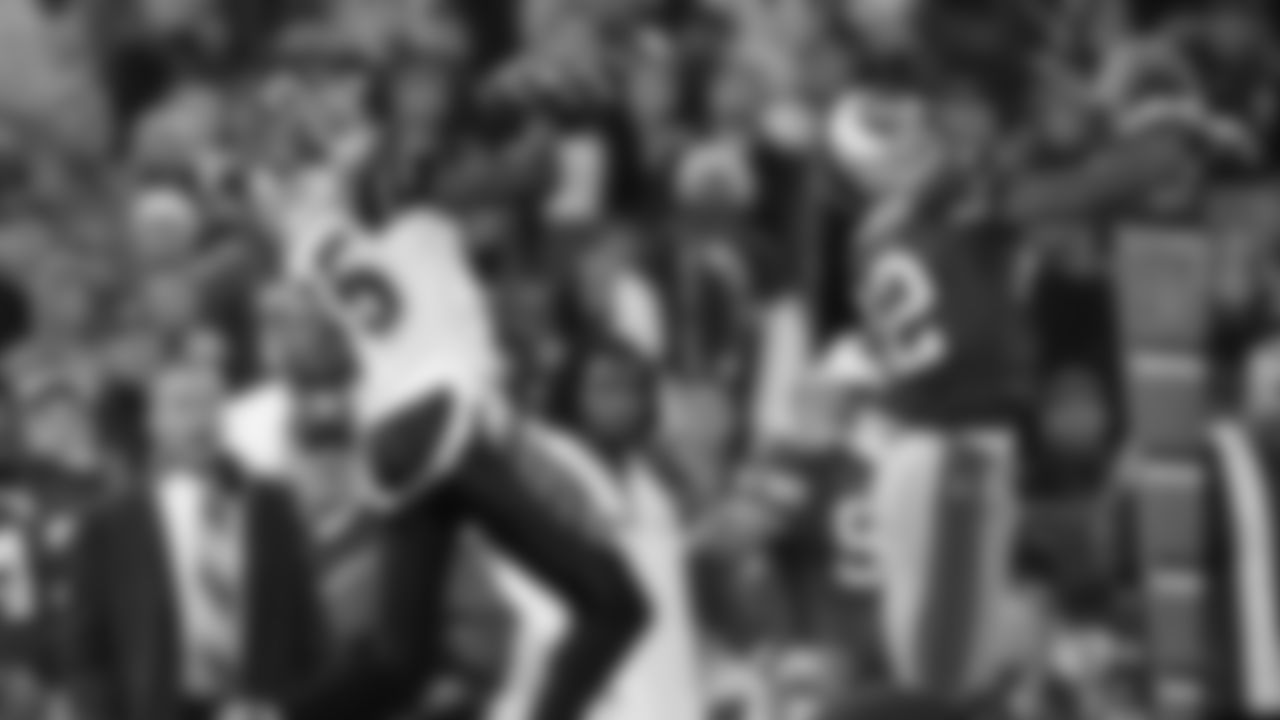
Cincinnati Bengals wide receiver Chad Johnson, left, makes a catch in front of San Francisco 49ers cornerback Nate Clements as 49ers head Coach Mike Nolan, bottom left, looks on during the second half on a football game in San Francisco, Saturday, Dec. 15, 2007. (AP Photo/Marcio Jose Sanchez)
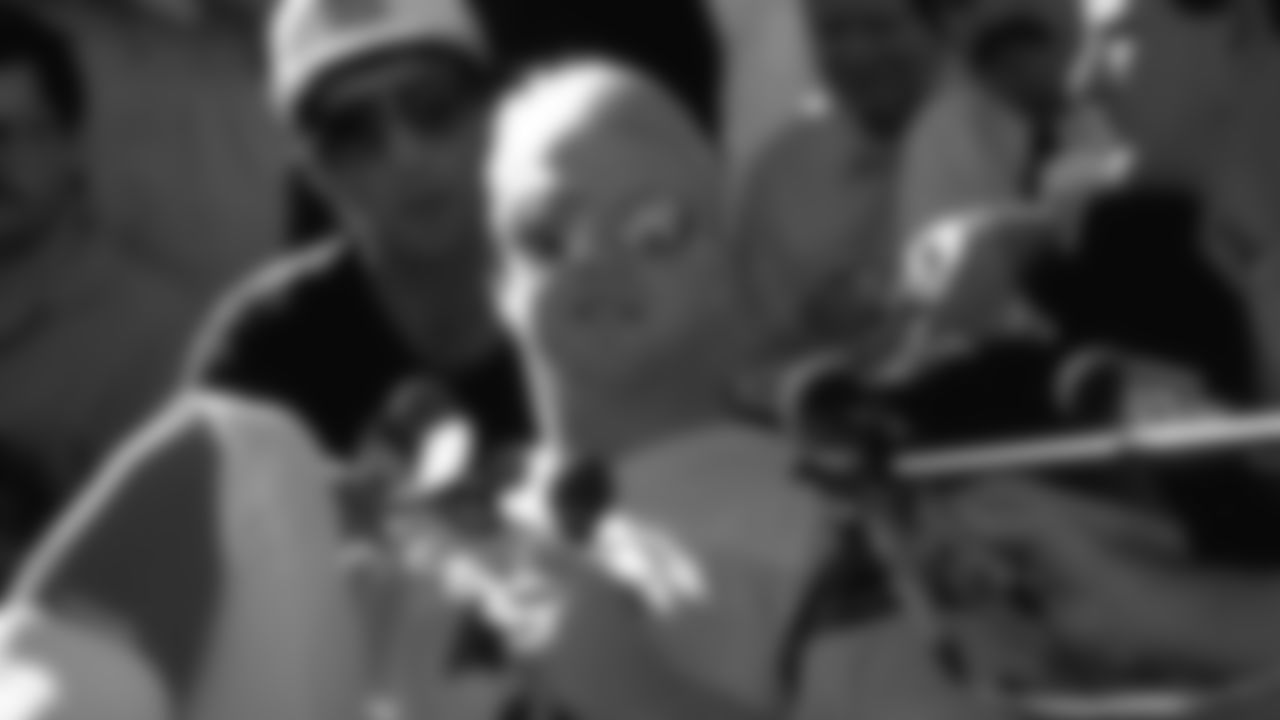
Cincinnati Bengals quarterback Boomer Esiason answers questions at Media Day January 17, 1989 before Super Bowl XXIII in Tampa, Florida. (AP Photo / Al Messerschmidt)
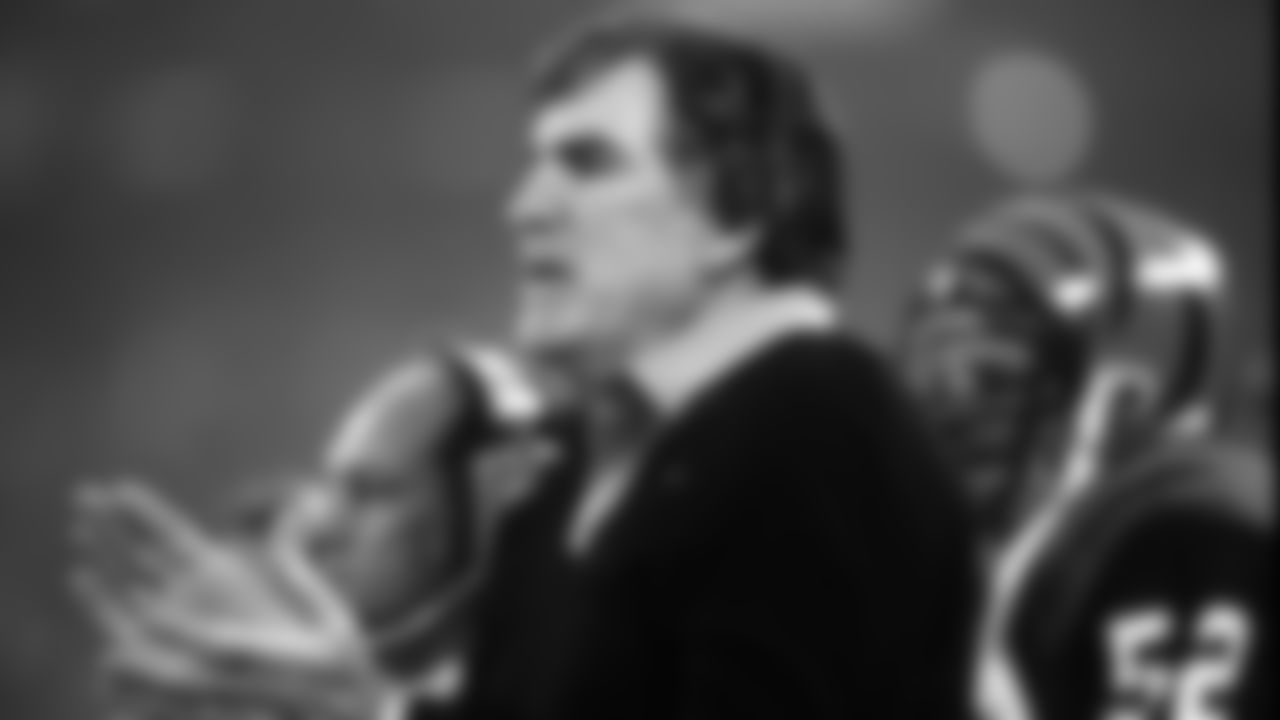
Cincinnati Bengals coach Forrest Gregg cheers on his team during Super Bowl XVI, against the San Francisco 49ers on January 24, 1982, at the Pontiac Silverdome in Pontiac, Michigan. (Al Messerschmidt via AP)
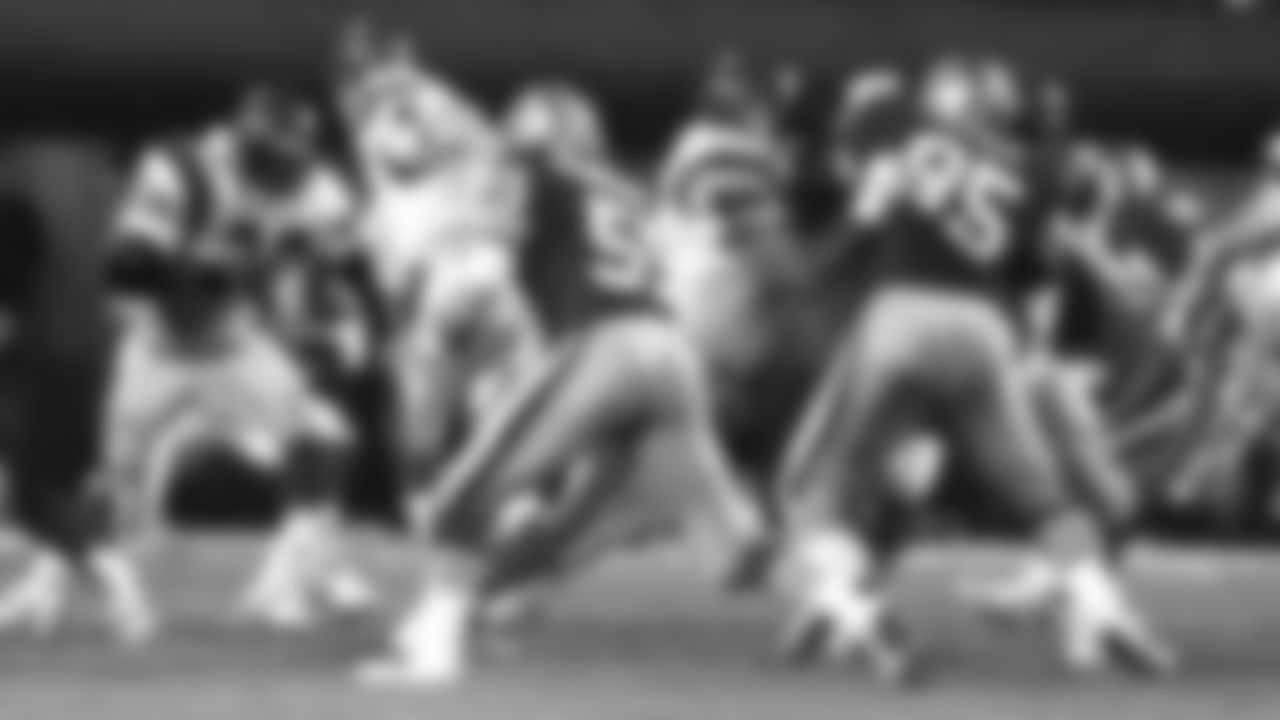
San Francisco 49ers linebacker Jim Fahnhorst (55) and nose tackle Michael Carter (95) are seen in action during Superbowl XXIII against the Cincinnati Bengals Jan. 22, 1989, in Miami. (NFL Photos via AP)
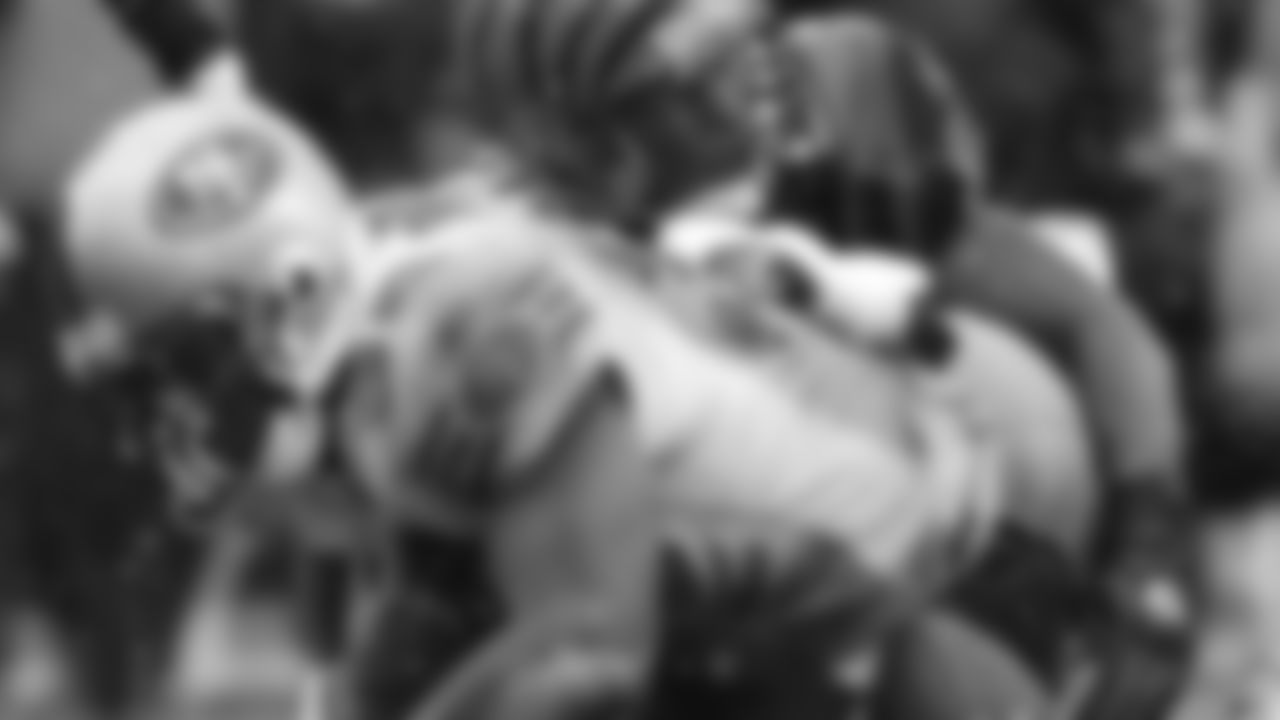
San Francisco 49ers' Kevan Barlow, foreground, fumbles the ball as he is tackled by Cincinnati Bengals' Mark Roman inside the 10-yard line during the third quarter Sunday, Dec. 14, 2003, in Cincinnati. Cincinnati won 41-38. (AP Photo/Tony Tribble)
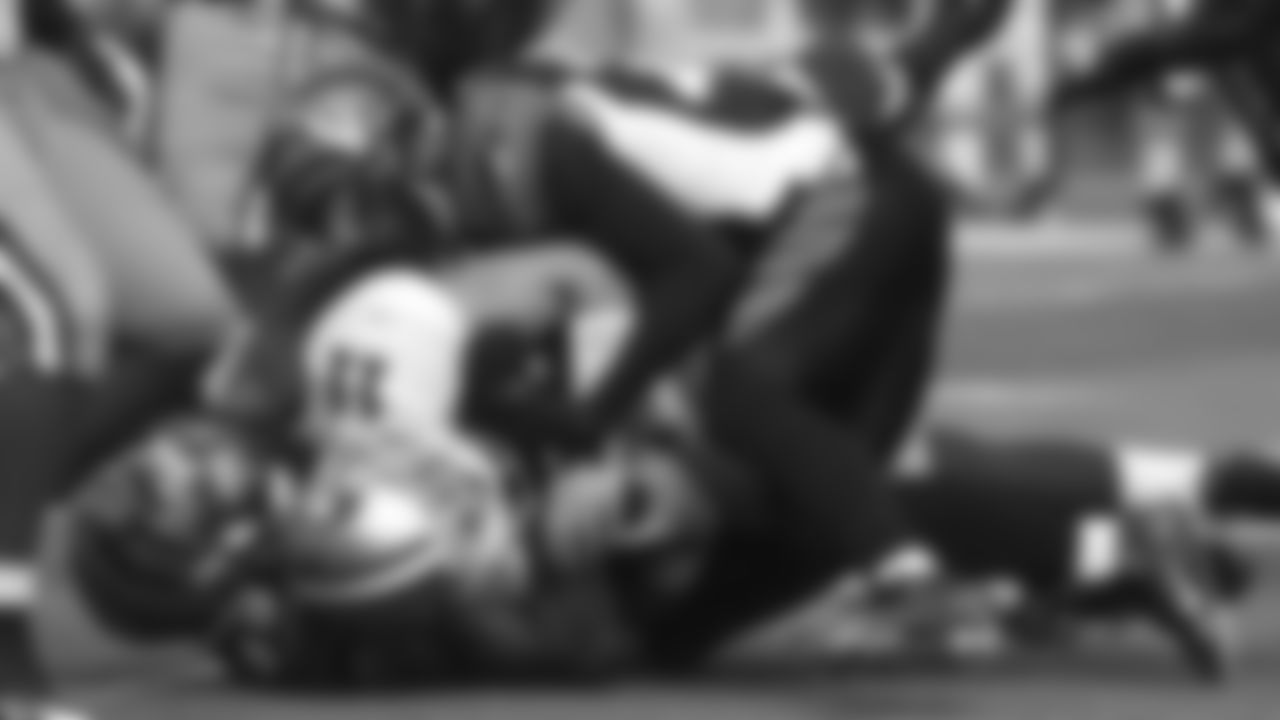
San Francisco 49ers quarterback Alex Smith (11) is sacked by Cincinnati Bengals linebacker Manny Lawson (99) and safety Reggie Nelson in the second half of an NFL football game, Sunday, Sept. 25, 2011, in Cincinnati. (AP Photo/Tom Uhlman)
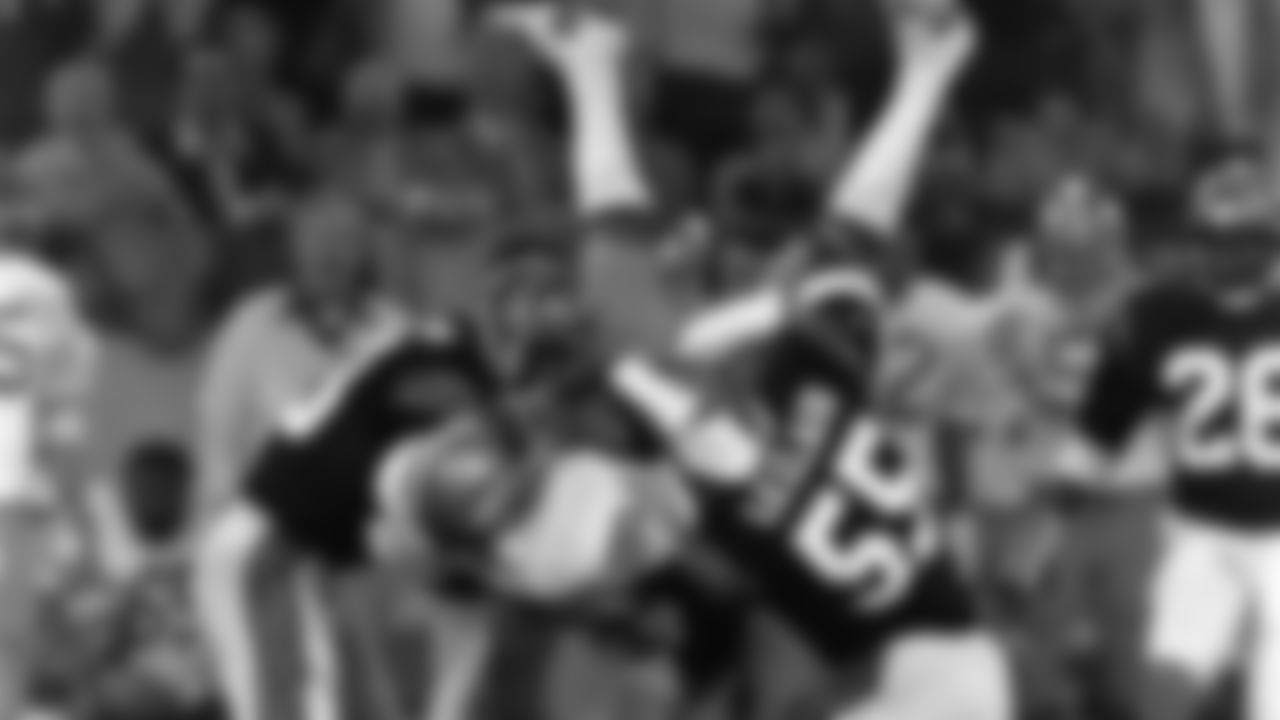
San Francisco 49ers tight end Charlie Young grabs a Joe Montana pass as he is flipped over by Cincinnati Bengals defensive players Jim LeClair (55) and Bo Harris during first quarter action of Super Bowl XVI, at the Pontiac Silverdome, January 24, 1982. (AP Photo/Rusty Kennedy)







